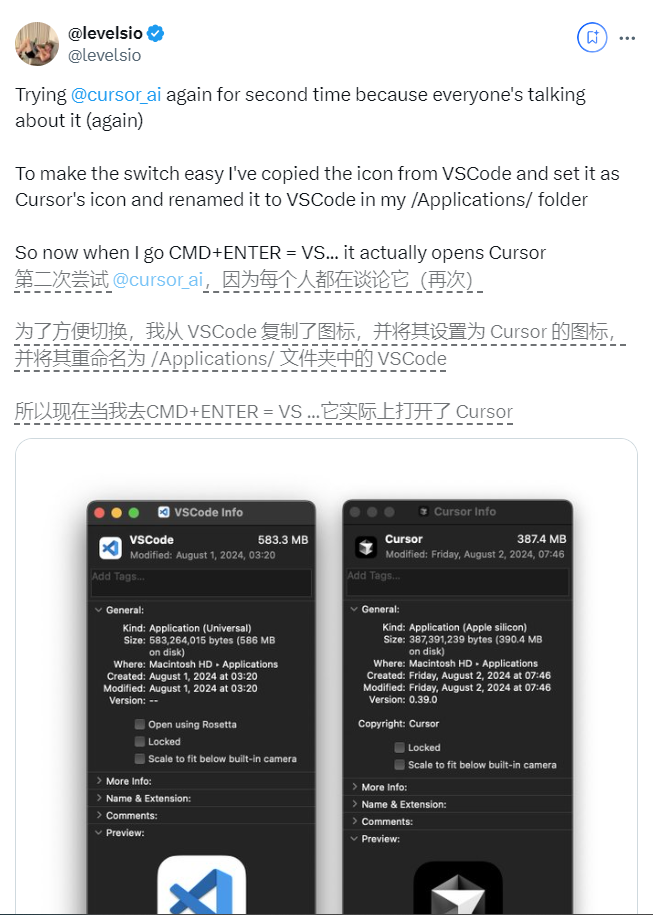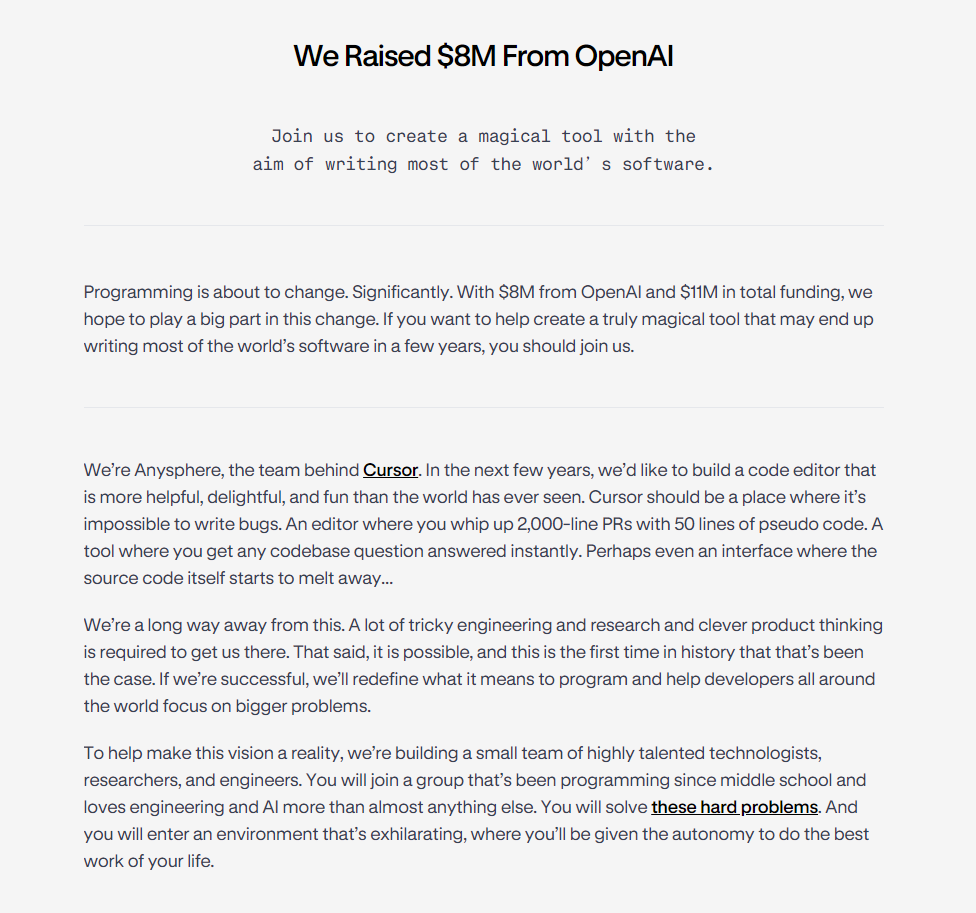In the tech world, a jaw-dropping "feud of the elite" is unfolding. Imagine nurturing a "child" only to have it suddenly declare allegiance to your arch-nemesis—OpenAI must be feeling this acutely right now.
This ungrateful offspring is Cursor, which OpenAI invested $8 million in. It shockingly switched its default model to Claude without warning, a move on par with the juiciest gossip in the entertainment industry. What's more distressing for OpenAI is that programmers are flocking to this "traitor," even willing to pay double to use Cursor. Compared to GitHub Copilot's $10/month, Cursor at $20/month has become their new darling.

Cursor's popularity is largely due to its support for the Claude-3.5-Sonnet model. Moreover, Cursor boasts several eye-catching new features. For instance, its "cursor position prediction" is akin to giving programmers telepathy, automatically guessing where they want to edit next, saving the hassle of manually searching through code.

Cursor's multi-line editing feature is especially cherished by programmers, allowing multiple lines of code to be modified at once, truly an efficiency marvel. They are also testing a new feature called Composer, which is like a "cloning technique" for programmers, enabling simultaneous modifications across multiple related files in a project, revolutionizing traditional work methods.

In the realm of code generation, Claude is currently at its zenith. In the latest Livebench benchmarks, Claude-3.5-Sonnet has consistently topped the charts, leaving GPT-4 and ChatGPT in the dust. This not only proves that OpenAI has lost its dominance in the field of code generation but also exposes the looseness of OpenAI's investment agreements.
Official announcement: https://www.cursor.com/blog/openai-fund









